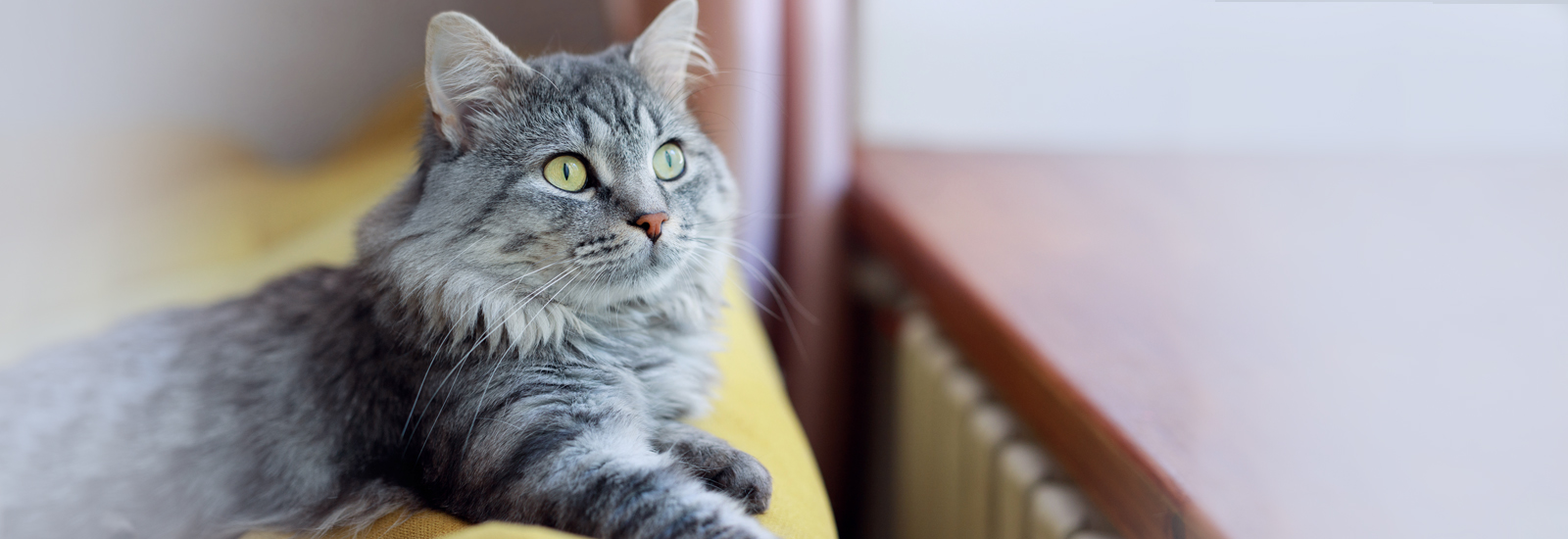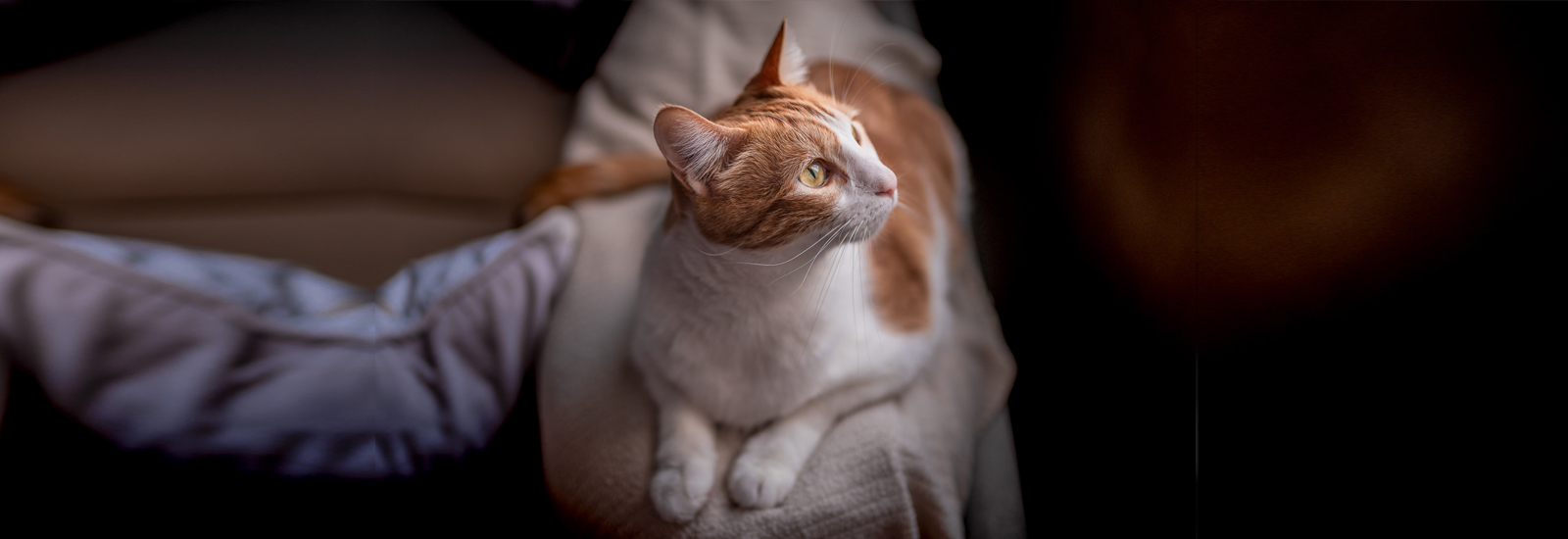Stomach problems in cats
An upset stomach is common in cats. The symptoms include vomiting and diarrhoea. The problems usually go away on their own. If this is not the case, the underlying cause should be established with the help of a vet.
When the stomach rebels
Some cats can eat whatever they like and hardly ever have problems with their stomachs. Others, however, are far more sensitive and react to a wide variety of triggers with an upset stomach in a short space of time. This can be acute and disappear just as quickly as it came.
If the symptoms persist for a longer period of time, the cause may be an inflammation of the stomach lining (chronic gastritis). Here, the affected cat’s stomach constantly produces too much gastric acid. This irritates the stomach lining and can cause inflammation. If left untreated, this can lead to a stomach ulcer. For this reason, any long-lasting stomach problems should always be examined by a vet.
Symptoms of stomach problems in cats
Unfortunately, cats are veritable masters at concealing the fact that they are ill. This is a natural defence mechanism to prevent potential enemies from realising that they have become vulnerable. You should therefore never overlook even apparently insignificant symptoms, because the stomach disorder may well be at an advanced stage.
Assessing cats that are always kept indoors is easy, because you can observe them all day and will quickly notice any symptoms, such as diarrhoea. It is, however, more difficult to detect stomach upsets in pets that are allowed outside. Here, it is important to pay even closer attention to any symptoms that could be a sign of stomach problems.
Symptoms of stomach problems:
- Vomiting
- Diarrhoea
- Loss of appetite
- Drowsiness
- Tenderness in the abdomen
- Head tilted downwards (sign of abdominal pain)
- Gag reflexes
Causes of stomach problems
A cat’s stomach is a sensitive organ, so a number of things can trigger stomach problems:
- Hairballs
- An abrupt change of food
- Food that is too cold or has gone off
- Parasites
- Food allergies
- Kidney disease
- Bacterial or viral infections
- Hormonal problems
- Hyperthyroidism (overactive thyroid)
- Ingestion of toxic substances
- Swallowed objects
- Stress
- Tumours
.
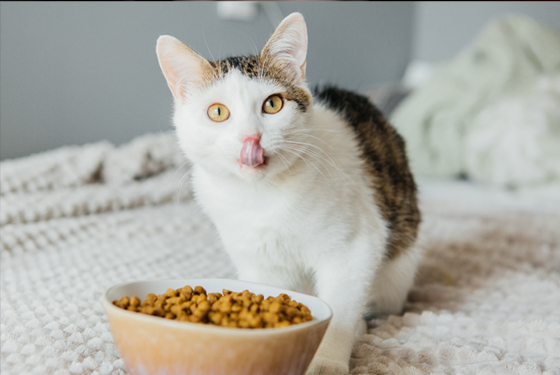
Diagnosis of an upset stomach
First you should try to find out for yourself the reason for your cat’s stomach problems: are you perhaps changing its food too often? Are you giving your pet wet food that is too cold, perhaps straight out of the fridge? Have you not combed your long-haired cat enough lately, so that it might have swallowed a lot of hair while cleaning itself? Or is your cat constantly exposed to particular external stress-inducing factors? These are problems that you can tackle yourself and help to prevent in the future.
If none of the above points come into question and there is no obvious change in your cat’s general condition, you can wait for a day and keep a close eye on how things develop. Often, the cat will eat very little food and thus relieve its stomach so that everything is fine again the next day. This will indicate that your cat had nothing more than a minor stomach upset. However, if the cat continues to show obvious symptoms, it is important to visit a vet. The vet has several options for the diagnosis: these include a blood and faeces test, X-rays, ultrasound scans and a gastroscopy.
Therapy for stomach problems
The treatment of an upset stomach is dependent on the underlying cause. If the diagnosis shows that you yourself have made a “mistake”, you may be able to rectify this relatively easily, whereby the symptoms will disappear. If the reason for your pet’s stomach upset is unclear, and its general condition is not a cause for alarm, an adult cat should first be put on a “zero diet” for one day. This means that the cat is not allowed to eat anything for 24 hours, but can drink small portions of water throughout the day. Treats are also taboo during this period.
If the examination of your cat reveals that there is no fault on your part, but that other causes are responsible for its stomach problems, the diagnosis will determine the therapy. If worms are found in the faeces, the vet will prescribe an anthelmintic (anti-worm) product; in the case of gastritis caused by bacteria, the cat will be given antibiotics; and if the problem is related to its nutrition, the cat may need to be put on a light diet or have a change of food. This special food is easy to digest and places only minimal strain on the gastrointestinal tract. You should feed your cat small portions of this light food spread out over the day. This will also protect your pet’s stomach and intestines. If you do not want to prepare this gentle food yourself, you can use wet food from specialist retailers, for example Integra Protect Intestinal. In most cases, stomach problems in cats can be dealt with relatively quickly with the appropriate remedies.
You may also like this
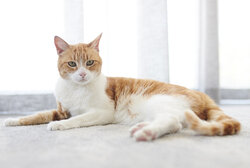
Diarrhoea in cats
Immediate measures and dietary changes in cases of diarrhoea
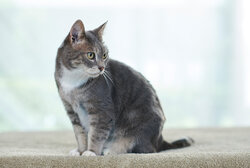
Food allergies in cats
In the case of a food allergy, a special food can help
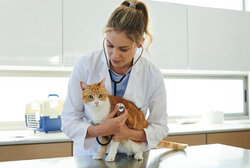
Kidney problems in cats
If its urine shows abnormalities, your cat should be examined
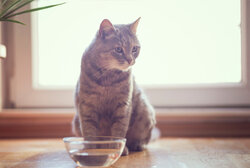
Feeding cats with health conditions
In many cases a suitable dietary food can help
